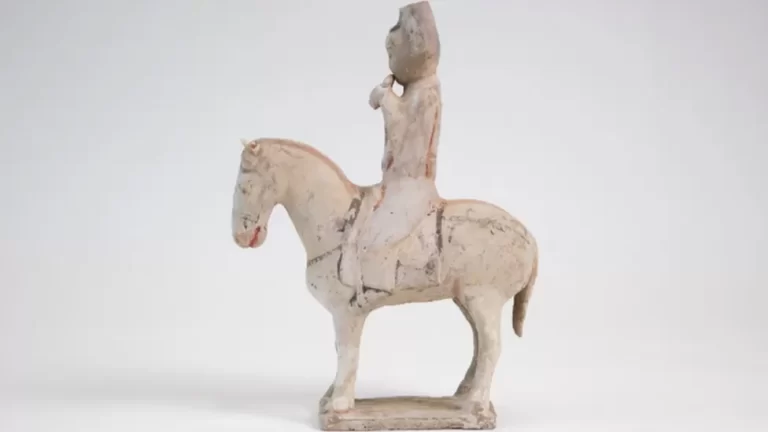Australia has returned to Beijing three historical artefacts thought to have been illegally exported out of China.
A dinosaur fossil that is more than 100 million years old and two Tang Dynasty figurines were handed to Chinese officials in Canberra. Police working at the Australian border had seized the items and referred them to authorities for investigation.
The handover comes shortly before Australian Prime Minister Anthony Albanese's visit to Beijing next month.
“Today we've witnessed how two nations can work effectively together to return cultural property to its rightful home,” Minister for the Arts Tony Burke said on Wednesday. “Whether it's items of cultural significance Australia holds or items overseas that belong to us – they should be returned.”
The items are:
- A fossil of a hyphalosaurus, a long-necked reptile species that lived in north-eastern China between 120 and 133 million years ago
- A Tang Dynasty (618 to 907 CE) figurine depicting a rider on horseback playing a wind instrument. These figures were placed in tombs to ensure a safe journey to the afterlife
- A Tang Dynasty gilt bronze figurine of the Buddhist deity Avalokitesvara, which was likely an altar piece
The ceremony also saw two other items dating back to the Ming and Qing dynasties given to China by the National Gallery of Australia and a private collector.

China's ambassador to Australia Xiao Qian expressed his “heartfelt gratitude” to the Australians at the ceremony, reported news agency Xinhua. Chinese state media reported that Australia and China have been working closely for the past three years to facilitate the return of illegally imported cultural relics, art items and fossils.
In August, Australia's national gallery returned three 9th and 10th Century bronze sculptures to Cambodia, after a decade-long investigation found that they were stolen.
It was also announced in March that four Aboriginal spears taken by British explorer Captain James Cook and his landing party when they first arrived in Australia in 1770 would be returned to their traditional owners. In recent months, Beijing has become increasingly vocal in calling for the return of historical artefacts stolen from China, including items currently owned by the British Museum.
— CutC by bbc.com


